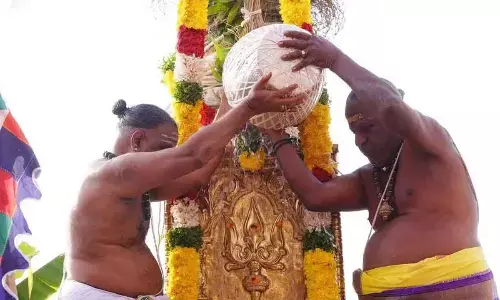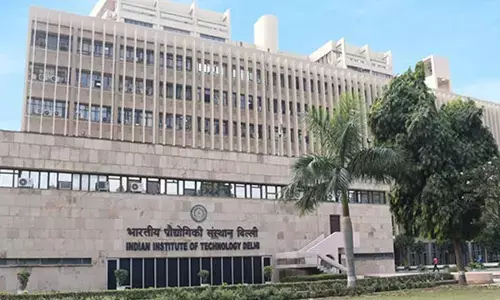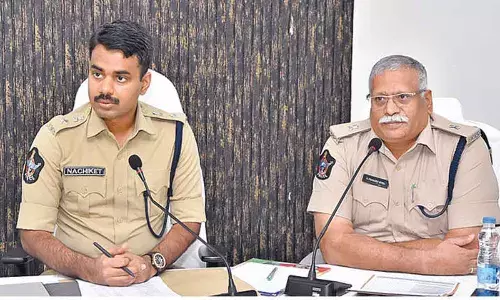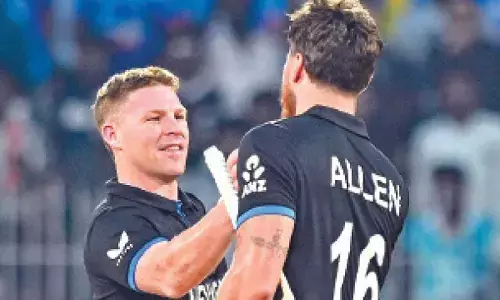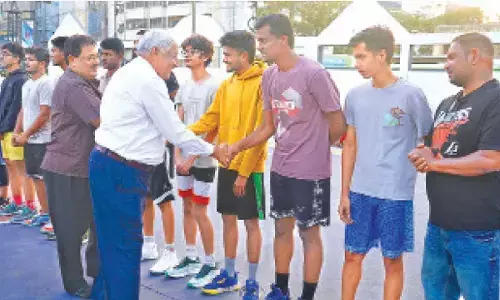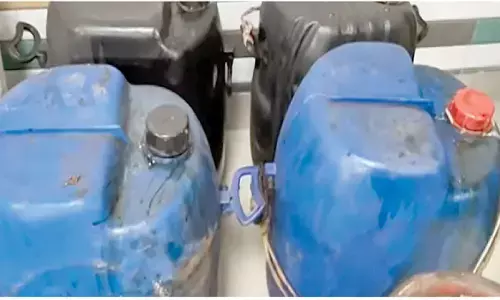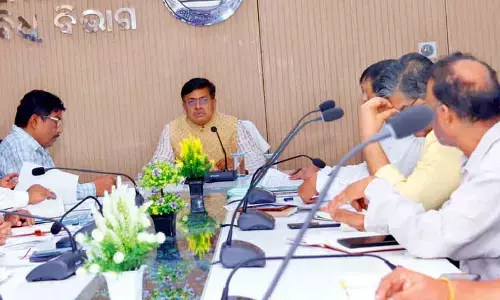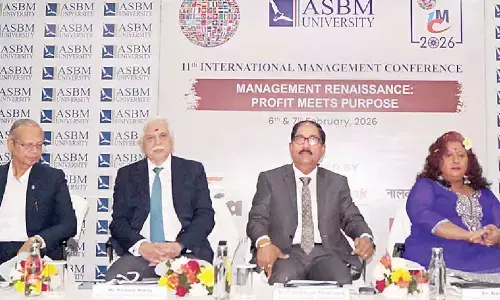No spirit of unity yet in Oppn camp
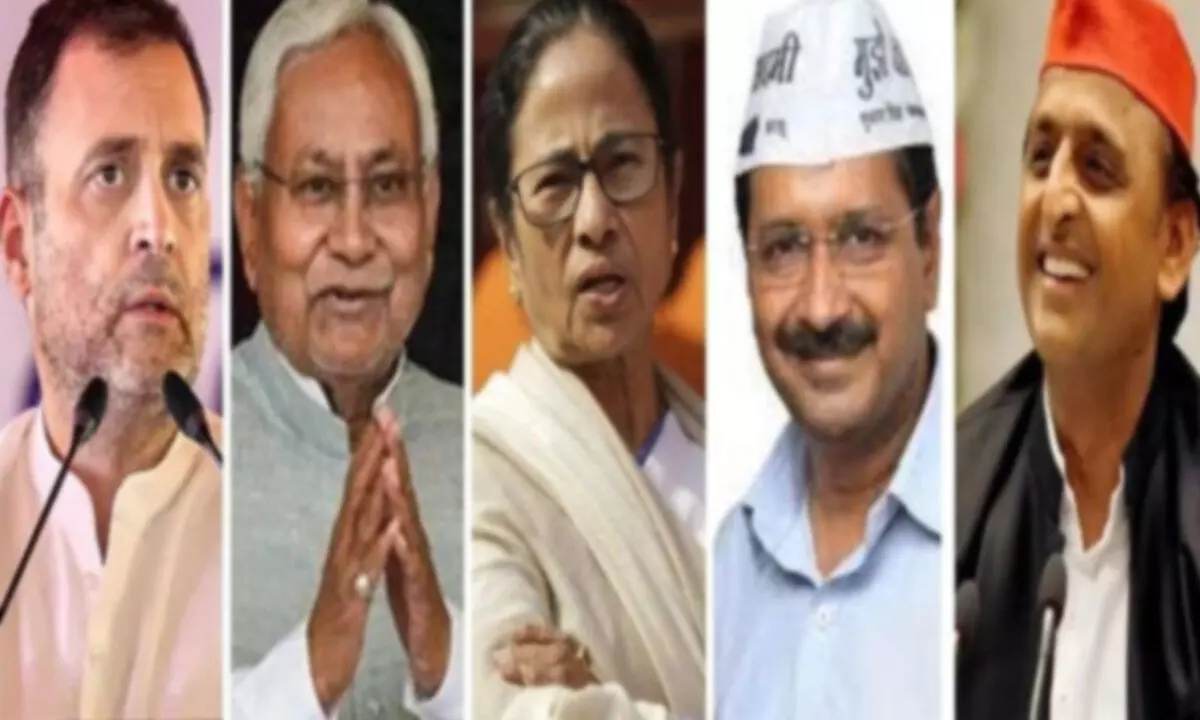
The Monsoon Session of Parliament will begin on July 20 and continue till August 1.
The Monsoon Session of Parliament will begin on July 20 and continue till August 1. For the next four days, all newspapers will come up with reports and articles as to how stormy the session would be, the issues that would generate heat during the session, how opposition would tear into the NDA government led by Prime Minister Narendra Modi on issues such as Uniform Civil Code, Manipur violence and the Delhi ordinance.
I wish the opposition parties really gear up to confront the government on such issues and ensure that there is meaningful debate – not ruckus, shouting and stalling the proceedings of the Parliament.
But the indication is that Parliament will commence with protests from Congress party over the disqualification of Rahul Gandhi, while some will rake up the issue of UCC, while few others like AAP may give notices to discuss the Delhi ordinance and then the proceedings would be stalled with all-party leaders going into the well, each one raising a different issue.
Does such behaviour really help the country? Is that the way the highest law-making body functions? Does it serve any purpose? Well, certainly it serves the purpose of the ruling party. Generally, the ruling party would be happy that the opposition had stalled the proceedings as many issues would remain buried and it will also give an opportunity to them saying that they were ready to provide answers to every query of the opposition but it was they who behaved in an irresponsible manner.
The opposition will say the government ran away from answering the issues and did not provide an opportunity for discussion. They will not accept that they themselves were not ready for discussion. We had seen it all when the first-of-its-kind major scam known as Bofors scam shook the Congress government led by Rajiv Gandhi. Despite noise and ruckus and protests inside and outside, Parliament did witness a thorough discussion and the government was put in the dock.
The opposition would like to use its lung power more to tell the people that they are the saviours of the country, more so because it happens to be an election year. If they have to speak on the floor of Parliament, maybe they will have to be more focussed, and discuss the merits and de-merits of issues like UCC but if the proceedings are stalled, they can simply come out and make no-holds-barred statements with elections in view.
Every senior leader and every political party would give lectures on prudency that needs to be shown in financial management but when it comes to performing legislative duties, they stall the proceedings and waste public money in form of the heavy expenditure that needs to be incurred every day during the session. One fails to understand in what way are they serving the cause of the common man by resorting to such activities. Why can’t the opposition unite on issues and take on the government?
This being the situation how can one believe that these fragmented opposition parties who refuse to give up their ego will unite after the Bengaluru meeting on July 17?
It is being claimed that as many as 24 parties are likely to attend a two-day conclave at Bengaluru in Karnataka, ostensibly, to zero in on a strategy to take on the Bharatiya Janata Party in the 2024 general elections. The big question is whether all the 24 parties would really attend it. Before the Patna meeting on June 23, a similar claim was made, and finally only 16 attended and each had put forward their own demands to continue with the yet to formed alliance.
The new invitees this time are MDMK, KDMK, VCK, RSP, Forward Bloc, Indian Union Muslim League (IUML), Kerala Congress (Joseph) and Kerala Congress (Mani), who were not part of the June 23 meeting. Together, these 24 Opposition parties have around 150 Lok Sabha members and hope to expand their footprints.
One needs to see if Mamata Banerjee decides not to rake up the issue of alliance between the Congress and the left in WB. Another question is will Samajwadi Party clarify whether they would like to be with the proposed alliance or with other friendly parties like BRS which has refused to join any alliance saying that it would serve no purpose and people would not believe them.
Since the conclave is being held in Karnataka, Congress Parliamentary Party chairperson Sonia Gandhi agreed to attend the meeting and Karnataka Chief Minister Siddaramaiah announced that he would host dinner for the mega Opposition leaders meeting. Not just that, Sonia Gandhi will also be part of the formal deliberation on July 18. Invitations to all including AAP have been sent. It is still unclear whether AAP would attend the meeting or not. They had announced at Patna meeting that they would not be part of the conclave unless Congress publicly assures them of support in Rajya Sabha to negate the Centre’s ordinance on Delhi services. The said ordinance gives the Lieutenant Governor of Delhi the final say over government officers in the national capital. Following this, Nitish Kumar tried to convince Arvind Kejriwal to attend the Bengaluru meeting, but AAP is yet to confirm.
Bihar Chief Minister Nitish Kumar, who has been playing the role of cupid in trying to unite political parties which are diametrically opposed to one another, has publicly stated that the possibility of the NDA government advancing Lok Sabha polls cannot be ruled out and hence there is an urgent need for the opposition parties to arrive at consensus on various issues in the shortest possible time. He has been batting for a one-on-one formula where the opposition parties can put up a joint candidate against the BJP candidate in each constituency. This again is an issue many opposition parties may not agree to so easily.
It also remains to be seen if the Bengaluru meeting would discuss the developments in Maharashtra and explore the possibility of more such vertical splits taking place in other parties ahead of the Lok Sabha elections and find a solution to prevent it.
Though RLD chief Jayant Chaudhary announced that he would be attending the Opposition meeting in Karnataka, yet, there is a speculation about the RLD joining the BJP-led National Democratic Alliance (NDA) soon. However, Nitish Kumar and his team feel that the Bengaluru meeting will be able to come up with some decisions like forming of groups to draft a common agenda for the opposition parties, keeping the Lok Sabha elections in mind. It will also decide on the name for the alliance and may even touch upon the seat-sharing formula at least informally.
Another issue that needs to be seen is if the grand old party Congress will crystallise how it sees its own role in solidifying the anti-BJP alliance. Another major issue is if this meeting keeps in mind the possibility of BJP going in for early elections. If not ‘one nation one election,’ it could be Lok Sabha polls with the five states. The latest speculation is that even Andhra Pradesh may join the states that would go in for polls by the end of year as it is being said that the AP government would be dissolving Assembly by mid-August.
If these parties continue to decide to hold more meetings, then there is a possibility that they will not get much time for deciding on candidates and mobilise necessary resources and go to people, seeking votes if the BJP decides to advance Lok Sabha polls. So, opposition leaders, remember time is running out! Act fast or remain satisfied with whatever seats you win.


